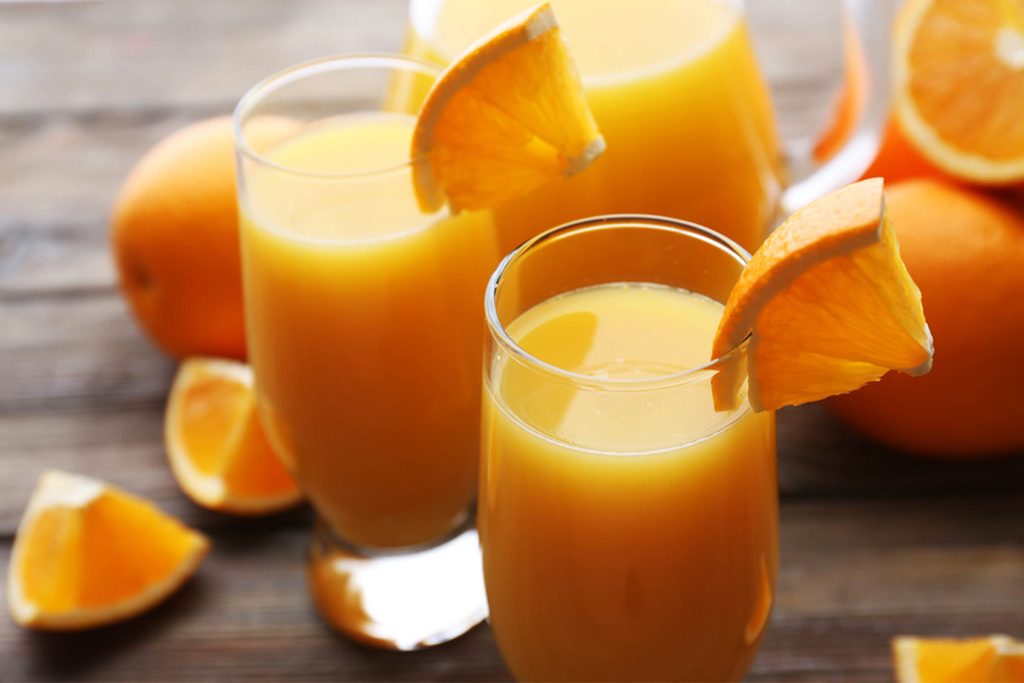The Surprising Reason Your Orange Juice Might Not Be Vegan
Updated: Mar. 06, 2019
Orange juice seems innocent enough for vegans, but some products contain sneaky animal products. Here's what to look for on your OJ label.

Orange juice seems like it would be fit for any diet—it’s just fresh-squeezed oranges, right? Actually, you might need to look at the label more closely. Your favorite breakfast drinks might not be vegan- or vegetarian-friendly.
If a bottle says it’s “100 percent orange juice,” you’re in the clear. The trouble comes with fortified products—which are still one of these 7 juices that are healthier than you realized.
OJ is famous for its vitamin C, but some companies give it an extra health boost. Of course, once a drink is fortified, it isn’t just plain old fruit juice anymore. Florida’s Natural, for instance, produces a version with calcium and vitamin D. A quick peek at the ingredient list might not raise any alarms—the only two things added are tricalcium citrate and vitamin D3. The key, though, is the specific form of vitamin D those juices use.
Vitamin D-fortified foods either contain D2 or D3, and the one on your label could be crucial for vegans. Vitamin D2 comes from plants, but D3 comes from animals—either lanolin, a waxy substance from sheep’s wool, or from fish oil. If you aren’t vegan, that’s a good thing. Studies show the body is better at absorbing vitamin D in the form of D3 than D2, likely because it’s the same form that humans metabolize in the sun. If you’re vegan, though, you might want to avoid those fortifications. Don’t miss these other 8 key nutrients vegetarians sometimes miss.
Also keep an eye out for a “heart-healthy” label, like Tropicana Healthy Heart. Like other food products meant to support your heart, it contains omega-3 fatty acids that can protect against cardiovascular disease. The ingredients list is clear about those healthy fats come from: fish oil and fish gelatin from tilapia, sardines, and anchovies. Non-vegetarians might prefer a yummy glass of OJ to a fish oil pill, but vegans will want to avoid both entirely. Instead, try these 7 non-fish sources of omega-3s.
There’s no need to give up your daily glass of OJ if you aren’t avoiding animal products, but if the idea weirds you out, stick with 100 percent juice or bite into these 10 foods with more vitamin C than an orange instead.
[Source: Eat This, Not That]











